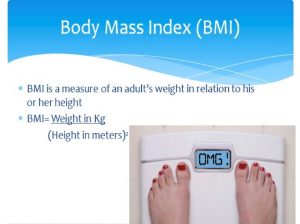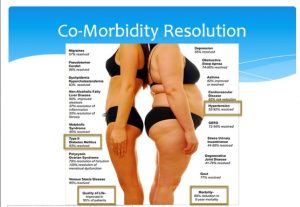An Epidemic within a Pandemic: Obesity
January 22, 2021
By Roozbeh Mansour, M.D.
General, Minimally Invasive, Bariatric Surgery and Advanced Abdominal Wall Reconstruction
Michael and Marian Ilitch Department of Surgery, Wayne Health
Assistant Professor of Surgery, Wayne State University School of Medicine
A new year is a time when we evaluate ourselves and set goals for the next twelve months. Weight loss will be at the top of the list for many Americans, as obesity continues to surge within the United States, with a current prevalence of 42.4%.
Obesity will continue to rise as 2020 left people homebound with decreased access to an active social life. Common obesity-related conditions include heart disease, stroke, type 2 diabetes, cancer and premature death.
As a result of the COVID-19 pandemic, we’ve learned that obesity also increases your risk of infection and death from COVID-19 and other infectious diseases.
A whole-food diet, low in saturated fat and carbohydrates, along with at least 150 minutes of activity weekly, are always the initial steps when it comes to weight loss. But when these measures continue to fail, bariatric surgery may be a valid treatment option that has vast benefits for severe obesity. Among all weight loss methods, surgical weight loss options have proven to be the most effective and provide the most permanent results, resolving a multitude of medical conditions associated with obesity.
To be a candidate for bariatric surgery, a patient should meet the following criteria: a body mass index (BMI) of 35 or above with at least one obesity-related condition, such as type 2 diabetes high blood pressure, sleep apnea or severe, painful joint disease; or a BMI of 40 or above with or without the previously named conditions.
After a patient meets the initial criteria, bariatric care should be customized based on the specific needs of the individual. Each patient should undergo a period of supervised medical weight management, psychologic evaluation, and any other specific medical care they or their insurance plan requires.
The benefits of bariatric surgery go far beyond the resolution of ailments most often associated with obesity. Migraines, depression, asthma, non-alcoholic liver disease, venous stasis disease (impairment of blood flow in the legs), gout, stress urinary incontinence and gastrointestinal reflux disease are some of the lesser-known ailments that can be resolved after bariatric surgery.
More and more patients have chosen bariatric surgery over the past decade as a realistic and preferred treatment for severe obesity. When considering bariatric surgery options, it is important to choose a health provider who offers a comprehensive, multidisciplinary approach to ensure the best outcome.
Wayne Health surgeons focus on your personal well-being, while performing advanced, minimally invasive surgeries using the most sophisticated imaging technologies, to deliver a faster recovery and to lower the risk of complications. To learn more, or connect with a Wayne Health doctor, request an appointment online or call (877) WAYNE-HC (877-929-6342).


